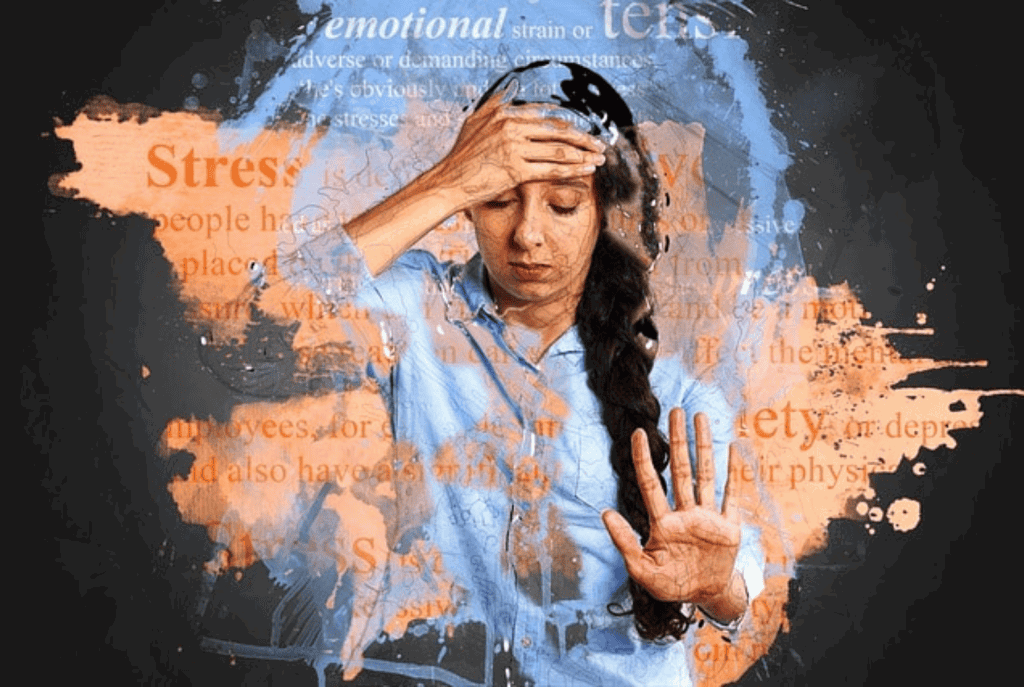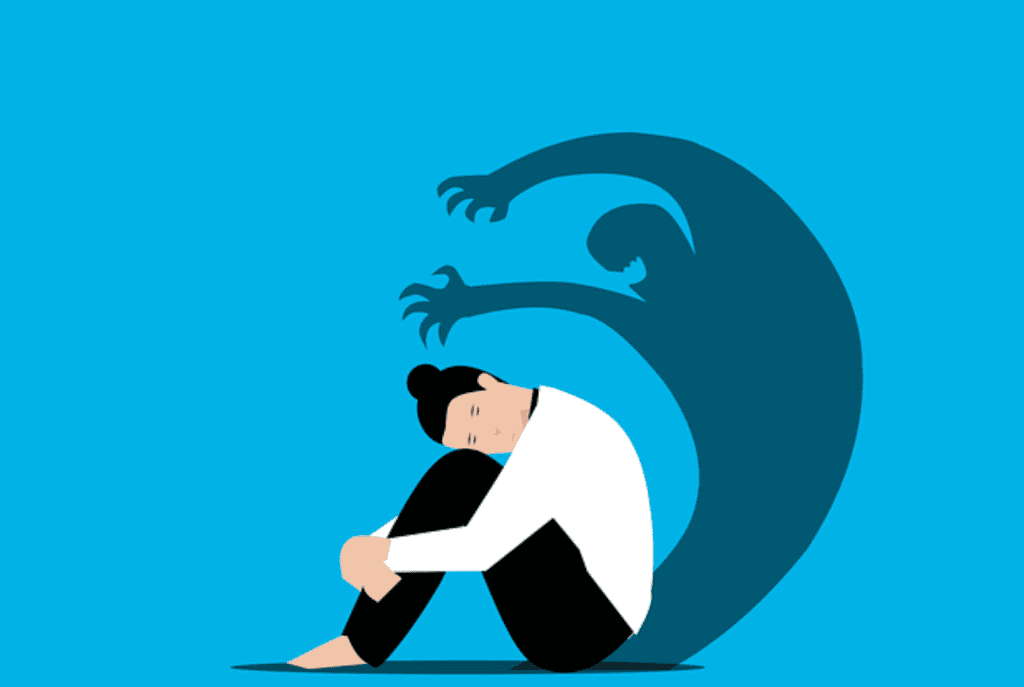In today’s fast-paced world, managing anxiety can be challenging. An intensive outpatient program (IOP) offers a structured yet flexible approach to treatment, providing individuals with comprehensive therapy and support while allowing them to continue their daily routines. This article explores how IOPs and other programs of outpatient treatment for anxiety provide practical strategies and therapeutic interventions, empowering individuals to regain control of their mental well-being outside of traditional inpatient settings.
Are you or a loved one searching for an intensive outpatient program for anxiety? Read on to learn about the benefits of an outpatient treatment program for anxiety.
What is Anxiety?
Anxiety disorder is one of the most common illnesses worldwide. Currently, over 264 million people have an anxiety disorder. Anxiety is a natural response to stress, characterized by feelings of apprehension, unease, or worry. It manifests in various forms, from generalized anxiety disorder to specific phobias, impacting both mental and physical health. Symptoms can range from mild to severe, affecting daily life and relationships.
Signs and Symptoms of Anxiety
The causes of anxiety disorders are not fully understood. However, it could be a combination of genetic, environmental, and psychological factors.
Common symptoms of anxiety disorders include the following:
- Excessive worry or fear that is difficult to control
- Restlessness or feeling on edge
- Muscle tension or shaking
- Rapid heartbeat or sweating
- Difficulty sleeping or concentrating
- Avoidance of situations that trigger anxiety

How Common Is Anxiety?
Anxiety disorders are a common mental health condition in the United States.
According to the National Institute of Mental Health, approximately 31% of U.S. adults experience an anxiety disorder at some point in their lives.
Types of Anxiety Disorders
- Generalized Anxiety Disorder (GAD): GAD is a chronic condition characterized by excessive and persistent worry involving anxiety about various everyday events or activities. People with GAD often have trouble controlling their worries and may experience physical symptoms. These include muscle tension, fatigue, and difficulty sleeping.
- Panic Disorder: Panic disorder features sudden, unexpected panic attacks. Panic attacks are intense episodes of fear or discomfort. They last for a few minutes and can show physical symptoms, including heart palpitations, sweating, and trembling.
- Social Anxiety Disorder (SAD): SAD is a condition characterized by excessive fear or anxiety in social situations. These include speaking in public or interacting with others. People with SAD often fear judgment from others.
- Specific Phobias: Specific phobias are intense, persistent fears of specific objects or situations. These include heights, spiders, or flying. People with specific phobias may go to great lengths to avoid the object or situation they fear.
- Obsessive-Compulsive Disorder (OCD): OCD is characterized by intrusive and repetitive thoughts. It also involves obsessions and compulsive behaviors or rituals. People with OCD often engage in these behaviors to relieve anxiety or prevent harm.
- Post-Traumatic Stress Disorder (PTSD): PTSD can develop after experiencing or witnessing a traumatic event, such as a natural disaster or violent crime. People with PTSD may experience intrusive thoughts or memories of the traumatic event. They also experience heightened anxiety or arousal.

What is Intensive Outpatient Treatment for Anxiety?
An intensive outpatient program (IOP) is a robust medical treatment process with more intensive therapy and support compared to traditional outpatient programs. It provides a middle ground between the structured supervision of inpatient programs and the flexibility of outpatient care.
IOPs typically include individual cognitive therapy, group therapy, and medication management, equipping individuals with essential skills to manage their substance use or mood disorders while continuing their daily lives.
Inpatient or Partial Hospitalization Level of Care
Intensive outpatient programs for adults with anxiety disorders aim to provide more intensive services for individuals and families or an alternative to residential treatment.
An IOP is advisable for individuals who have completed a more intensive level of care at a treatment facility. This includes inpatient or partial hospitalization. However, some individuals may still need ongoing treatment and support to maintain their progress.
It is also suitable for individuals with mild to moderate symptoms who do not require the intensive support of inpatient programs. Intensive outpatient therapy includes several hours of daily therapy and support.
An IOP is useful to treat personality disorders, substance abuse, or other mood disorders. It provides the support and resources needed to achieve and maintain recovery.
How Does an IOP Differ from Other Treatment Programs?
An IOP is short for an intensive outpatient program, while a PHP stands for a partial hospitalization program. Both are treatment programs for individuals seeking treatment for mental health and substance use disorders.
Key Differences
There are several key differences between the two programs, which include the following:
- Level of care: A PHP is a higher level of care than an IOP. A PHP involves more intensive therapy and support. It may include medical monitoring and more frequent check-ins with healthcare providers.
- Time commitment: A PHP requires a more significant time commitment than an IOP. A PHP may involve spending several hours daily, up to seven days per week, at a treatment center. In contrast, an IOP involves several hours of daily therapy and support.
- Structure: A PHP is more structured than an IOP. Partial hospitalization programs may involve a structured daily routine. This includes scheduled therapy sessions, meals, and activities. It allows individuals to maintain their day-to-day responsibilities while still receiving treatment.
- Medical monitoring: A PHP may involve more medical monitoring than an IOP. This may include monitoring of vital signs and medication management. It may also include close supervision by healthcare providers.
When Is an IOP Appropriate?
Intensive outpatient programs are appropriate after completing a more intensive level of care. It is also for those who are experiencing mild to moderate symptoms.
They will not need the level of support provided by partial hospitalization programs.
How Does an IOP Differ From a Regular Outpatient Program?
An Intensive Outpatient Program (IOP) differs from a regular outpatient program by offering more intensive therapy and support. While regular outpatient programs typically involve fewer hours of therapy per week, IOPs provide several hours of structured therapy sessions and support each week. Both are for individuals seeking treatment for mental health or substance use disorders.
Intensive Treatment vs. Regular Outpatient
There are several key differences between the two programs, including:
- Intensity of therapy: An IOP involves more intensive therapy than a regular outpatient program. They may also involve several hours of treatment and support each day. This may span several days per week to several months. In contrast, a regular program may involve one or two weekly therapy sessions.
- Structure: An IOP may offer more structure than a regular outpatient program and involve a structured daily routine. This includes scheduled therapy sessions and activities, while a traditional outpatient program may offer more flexibility.
- Level of support: An IOP may provide more support than a regular outpatient program. Intensive outpatient programs may offer group therapy sessions, peer support, and other forms of support. A regular outpatient program may offer mainly individual therapy.
- The severity of symptoms: Intensive outpatient programs are for individuals with more severe symptoms. It is also for those who have completed a more intensive level of care. Regular outpatient programs are appropriate for individuals with mild to moderate symptoms.
How Can an IOP Help With Anxiety?
An intensive outpatient program for anxiety is a structured and comprehensive treatment program to help manage anxiety disorders.
The ways an IOP can help with anxiety include the following:
- Combines individual and group therapy sessions. It also involves education about anxiety management strategies and coping skills.
- Cognitive-behavioral therapy (CBT) is used in an intensive outpatient program for anxiety. It aims at identifying and challenging negative thoughts and beliefs.
- Provides a supportive and structured environment. In addition, they help develop healthy coping strategies and maintain progress toward recovery.
- May include medication management to help manage symptoms of anxiety.

Benefits of an Intensive Outpatient Treatment
There can be many benefits to anxiety treatment through an intensive outpatient program. The benefits of an IOP include the following:
- Access to structured and comprehensive treatment: An intensive outpatient program for anxiety is more effective than outpatient therapy alone.
- Supportive environment: Intensive treatment for anxiety provides a supportive and structured environment. This can help individuals develop healthy coping strategies and progress toward recovery.
- Flexibility: An intensive outpatient program for anxiety offers more flexibility than inpatient hospitalization. It also provides the needed treatment, which happens while maintaining their daily responsibilities and activities.
- Cost-effective: Intensive outpatient treatment for anxiety is typically less expensive than inpatient hospitalization. In addition, it is a more accessible treatment option.

What Treatment Modalities Are Used in an IOP?
An intensive outpatient program for anxiety may use a range of methods employed by mental health professionals. These are evidence-based methods, including traditional therapy such as cognitive-behavioral therapy (CBT), exposure therapy, and acceptance and commitment therapy (ACT). Dialectical behavior therapy (DBT) is also used in intensive treatment for anxiety, which employs mindfulness-based interventions.
These therapies at an intensive outpatient program for anxiety are offered in individual or group settings, in addition to medication management and educational workshops on stress management.
The treatment modalities for intensive anxiety therapy are adaptable, ensuring optimal effectiveness and outcomes.
How Can These Methods Help Guide an Individual Toward Healing?
An intensive outpatient program for anxiety can help guide individuals toward healing and recovery quickly in a safe environment.
The ways in which an IOP can help guide someone toward healing include the following:
Provide education and support around coping mechanisms
These include mindfulness practices, breathing exercises, and grounding techniques.
Offer group therapy sessions
Here, individuals can share their experiences. They can also connect with others who are going through similar challenges.
Provide medical supervision for individuals taking medication
This will help manage their symptoms.
Offer a range of evidence-based therapies
These include cognitive-behavioral therapy (CBT), dialectical behavior therapy (DBT), and trauma-focused therapy. They will help individuals identify and challenge negative thought patterns. It will also help develop healthy coping strategies.
Provide individual therapy sessions
These will help develop a personalized treatment plan.
Offer family therapy sessions
This will address issues within the family dynamic, as they may contribute to the individual’s mental health challenges.
Provide educational workshops and resources
These will help individuals develop life skills, including stress management, communication, and problem-solving.
Offer case management services
It will help access community resources and coordinate care with other healthcare providers.
Provide a structured and supportive environment
This will make individuals feel safe and comfortable as they work towards recovery.
Offer a continuum of care
This will help individuals transition from an IOP to lower levels of care. This includes regular outpatient therapy. It will also provide ongoing support to help maintain long-term recovery.

How Does Rockland Recovery Help Individuals Heal From Anxiety?
Rockland Recovery is a treatment center that provides comprehensive and individualized care. This is for individuals struggling with anxiety disorders.
The program offers a range of evidence-based therapies and treatment approaches, including cognitive-behavioral therapy (CBT) and dialectical behavioral therapy (DBT).
The goal of the intensive outpatient program for anxiety is to help individuals develop skills. These are necessary to manage their anxiety symptoms. We will also help lead healthy, happy, and fulfilling lives.
Reach Out and Begin Healing
If you or someone you know is struggling with anxiety, we encourage you to request a confidential call. At Rockland Treatment Center, we understand the sensitivity and complexity of your situation and are here to offer you a space to explore treatment options, ask questions, and receive support from experienced professionals. Taking this first step can be challenging, but it’s a courageous and significant move towards a healthier, more fulfilling life. Contact us today to get started on your individualized treatment plan.

